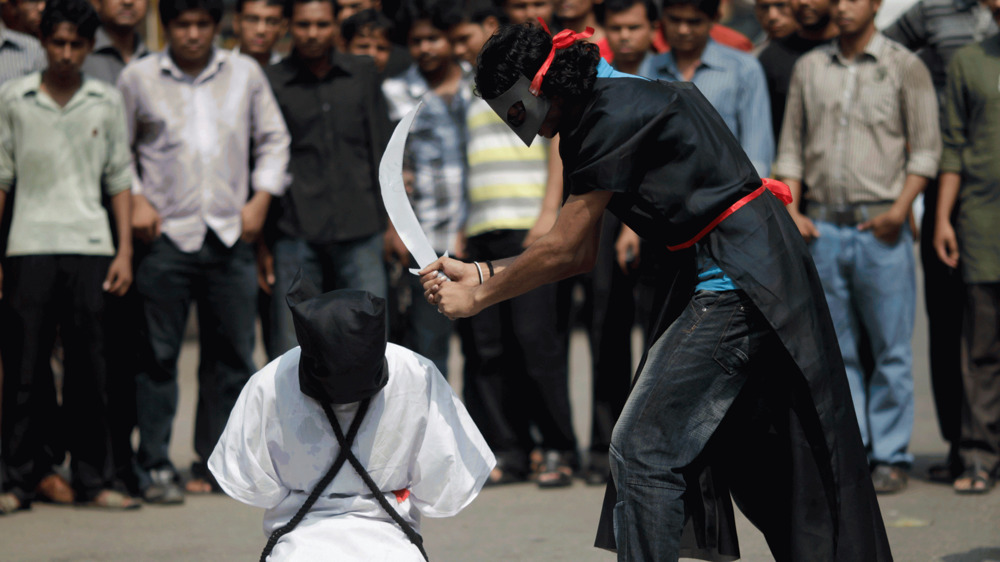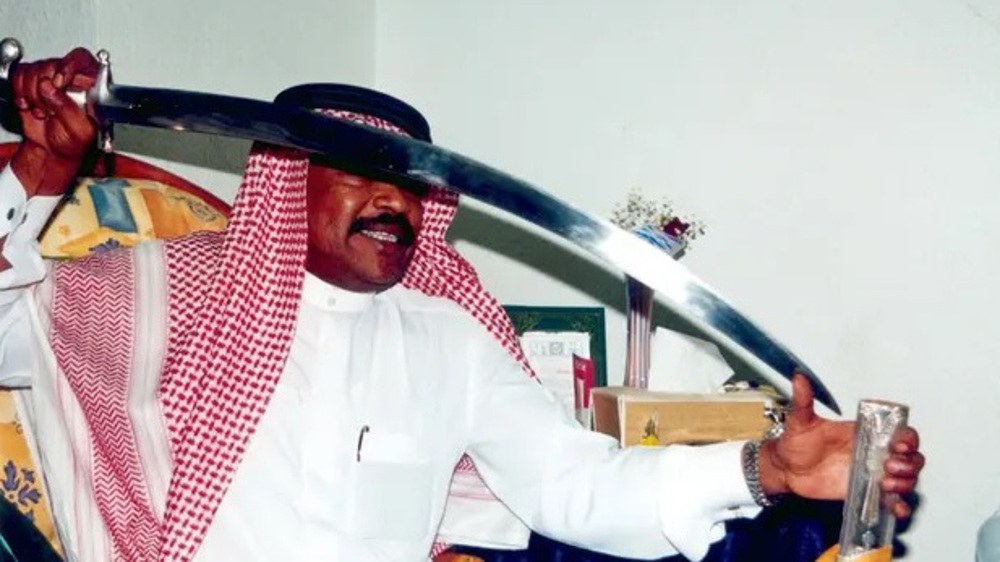UN rights office censures Saudi regime over surge in executions
The United Nations human rights office has censured Saudi Arabia over the ultraconservative kingdom’s near daily executions in recent weeks and termination of a 21-month moratorium on implementing the death penalty for drug-related offenses.
The Office of UN High Commissioner for Human Rights (OHCHR) announced on Tuesday that 17 men have been executed for drug and contraband offenses across Saudi Arabia since November 10, with the latest three executions having taken place a day earlier.
"Those executed to date are four Syrians, three Pakistanis, three Jordanians, and seven Saudis," OHCHR’s spokeswoman Liz Throssell told reporters in Geneva.
Throssell said the total number of executions in Saudi Arabia this year stood at 144, including 47 people executed on political charges and 56 people executed for murder, adding that most executions in the country are believed to have been carried out by beheading.
Throssell stressed that the executions have been taking place almost daily over the past two weeks, following the end of a 21-month official moratorium.
“The resumption of executions for drug-related offenses in Saudi Arabia is a deeply regrettable step, all the more so coming just days after a wide majority of States in the UN General Assembly called for a moratorium on the death penalty worldwide,” she told reporters.
🇸🇦#SaudiArabia: The resumption of executions for drug-related offences is a deeply regrettable step. We call on the authorities to adopt a formal moratorium on executions for drug-related offences. https://t.co/E1mfkIvlSB #EndDeathPenalty pic.twitter.com/ucN4iD1yn4
— UN Human Rights (@UNHumanRights) November 22, 2022
Underlining that imposing the death penalty for drug offenses is “incompatible with international norms and standards," the UN official said, “We call on the Saudi authorities to adopt a formal moratorium on executions for drug-related offenses, to commute death sentences for drug-related offenses, and to ensure the right to a fair trial for all defendants, including those charged with such offenses, in line with its international obligations."
The OHCHR said it remains unclear how many people are on death row in Saudi Arabia since executions are only confirmed after they take place.
However, Throssell pointed to reports that a Jordanian man, identified as Hussein Abo al-Kheir, "may be at risk of imminent execution," with rights experts noting grave concerns relating to his right to a fair trial.
Since Crown Prince Mohammed bin Salman became Saudi Arabia’s de facto leader in 2017, the kingdom has arrested hundreds of activists, bloggers, intellectuals and others for their political activism, showing almost zero tolerance for dissent even in the face of international condemnation of the crackdown.
Muslim scholars have been executed and women’s rights campaigners have been put behind bars and tortured as freedom of expression, association, and belief continue to be denied by the kingdom's authorities.
Over the past years, Riyadh has also redefined its anti-terrorism laws to target activism.
Israel preparing to stay in southern Lebanon after ceasefire: Report
Israeli pressure on Hamas ‘hardly helped’; swap deal necessary: Ex-Mossad chief
Far-right Israeli minister Ben-Gvir again storms al-Aqsa Mosque
Iran: Israel’s attack on journalists’ vehicle in Gaza amounts to ‘war crime’
VIDEO | Israel’s war spending
Palestine Action wins again
VIDEO | Palestinian Authority's blockade of Jenin refugee camp reaches third week
Dec. 25: ‘Axis of Resistance’ operations against Israeli occupation











 This makes it easy to access the Press TV website
This makes it easy to access the Press TV website